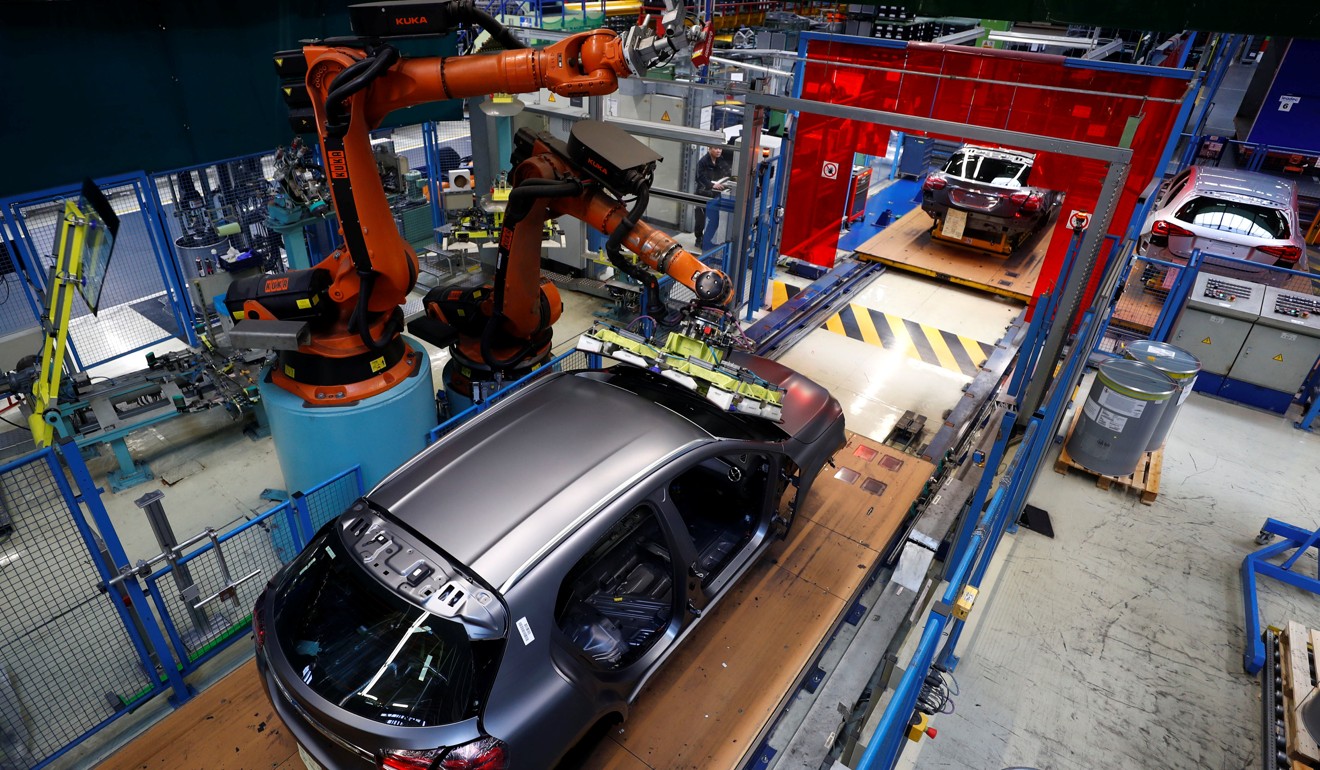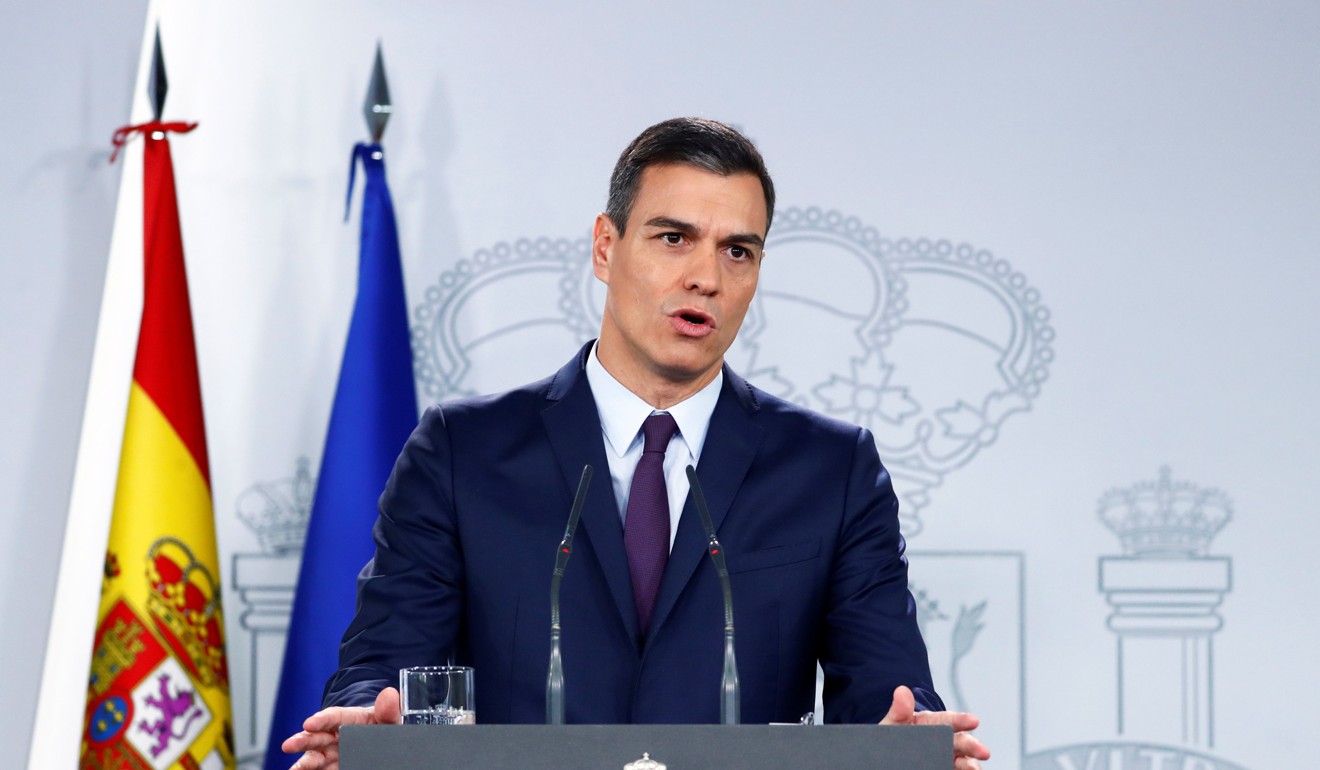
Brexit apart, Spain’s political uncertainty is a microcosm of the euro zone’s deepening troubles
- The Spanish prime minister’s call for an early general election is symptomatic of governmental instability and stagnating growth across the euro zone. A no-deal Brexit is not a shock the single currency region could bear easily
Moreover, this political angst, alongside the continuing drama of Brexit, appears to be contributing to flagging European economic growth. On Wednesday, for instance, it was announced that euro-zone factories saw a production slump in December for the second month in a row.
Industrial production was 0.9 per cent lower in December than November, according to the Eurostat statistics agency, the fourth fall in six months. Overall, the euro zone grew by only 0.2 per cent in the last three months of 2018.

Italy fell into recession in the final three months of 2018, in a blow to the populist, right-wing government which has promised to rejuvenate growth. And it was announced on Thursday that Germany had only very narrowly avoided a recession after the nation’s gross domestic product was flat in the October-December quarter, following a contraction from July to September.
It is amid this economic angst that the latest Spanish political setback comes, underlining deep uncertainty over the nation’s future governance. This is because the ruling Socialist Party, which currently leads opinion polls with around 30 per cent of support, is nonetheless still widely blamed for the fact that it was also in government around a decade ago when the Spanish economy went into deep recession. It currently has only 84 members of parliament in the 350-seat legislature. This tally follows the party’s worst national election showing, in 2016, since Spain transitioned to democracy after the 1975 death of dictator Francisco Franco.
The fragile legislative position of the Socialist Party, which has headed a minority government since the middle of last year, comes in the context of an even bigger story in Spanish politics following the June 2016 election, which saw no party emerge with an overall majority.
A dominant narrative of that ballot, the second in the space of six months, was the shattering of the long-running political duopoly of the right-of-centre People’s Party and the Socialist Party that has dominated the country since the late 1970s. Indeed, the combined vote of the two parties, which was around 85 per cent of the ballot in the 2008 general election, fell to around 55 per cent in 2016.

A key backdrop to the April election is the tension between Madrid and separatists in Catalonia. Separatist tensions reached a peak in 2017 when Catalonia sought to break away from Spain in a referendum. While this dramatically escalated the issue, the backdrop for the event was rising support for Catalan independence since 2010, when a reform to extend the regional government’s powers was struck down by the Spanish Constitutional Court.
With the potential for significant continuing political uncertainty in Spain, financial markets may become increasingly jittery as the election outcome may not provide even short-term stability.
If political risks were to rise significantly in the coming weeks, as pre-election polling begins, this could undermine the Spanish economic recovery, which follows a recession that saw a property crash and unemployment peaking at 27 per cent.
Taken overall, the new Spanish governmental uncertainty is a microcosm of wider political angst within the euro zone, including in the other large economies of Italy, France and Germany. This instability across these euro-zone nations may drive the single currency area into a significant new slump, especially if the shock of a no-deal Brexit adds to the continent’s current woes.
Andrew Hammond is an associate at LSE IDEAS at the London School of Economics

